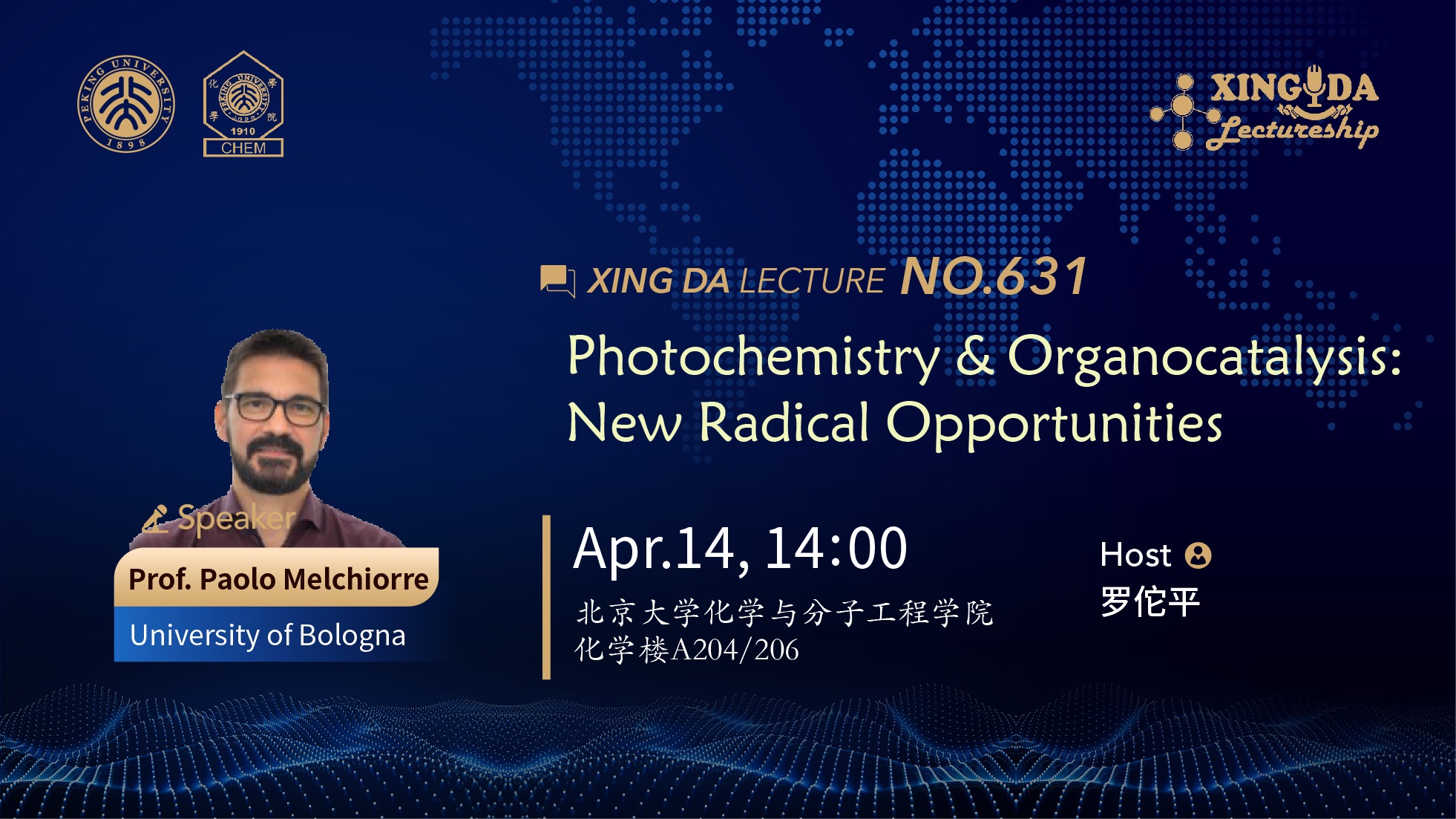Speaker: Prof. Paolo Melchiorre, University of Bologna, Italy
Time: 14:00 pm, April 14, 2023, GMT+8
Venue: Chemistry Building A204/206
Abstract:
The chemical reactivity of electronically excited molecules differs fundamentally from that in the ground state. This is the underlying reactivity concept of photochemistry, which has traditionally allowed the development of unique chemical transformations not achievable via conventional ground-state pathways. For example, an excited-state molecule is both a better electron-donor (i.e. a better reductant) and electron-acceptor (i.e. a better oxidant) than in the ground state. This explains why the light excitation of organic molecules can unlock unconventional reactivity manifolds.
In this context, our laboratory has been exploring the potential of some organocatalytic intermediates to directly reach an electronically excited state upon visible-light absorption to then switch on novel catalytic functions that are unavailable to ground-state organocatalysis. Studying the mechanism of these photochemical approaches allowed us to expand the synthetic possibilities offered by the excited-state reactivity of organocatalytic intermediates and to develop enantioselective radical processes.
Biography:
Professor of Organic Chemistry, University of Bologna
1993-1999 MSc in Chemistry, University of Bologna (Italy)
2000-2003 Ph. D. in Chemical Sciences, University of Bologna
2003-2006 Postdoctoral Fellow in Chemistry, University of Bologna
2007-2009 Assistant Professor, University of Bologna
2009-2022 ICIQ group leader and ICREA Professor, ICIQ (Tarragona)
2022- Professor of Organic Chemistry, University of Bologna
2011 Young Talented Lecture in the 17th European Symposium on Organic Chemistry (ESOC 2011), Crete; 2013 JSPS Fellowship; 2014 Erdtman Lecture; 2015 Thieme Lecture; 2016 Prize for Scientific Excellence from the Royal Spanish Chemical Society (RSEQ); 2019 “Giorgio Modena” Medal from the Italian Chemical Society; 2020 Fellow of the Royal Society of Chemistry (FRSC); 2021 Pedler Award of the Royal Society of Chemistry (RSC); 2019 - present Associate Editor of “Chemical Science”.
Source: School of Chemistry
